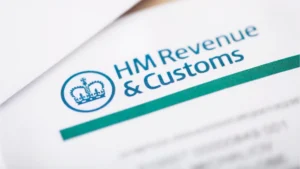Simplify VAT Management with our VAT Loans
Quarterly VAT bills can put pressure on your cash flow, especially when unexpected costs arise.
Funding Guru’s VAT loans provide fast, flexible funding to help you meet your obligations with confidence, maintain financial stability, and keep your business running smoothly.
- Loan from £25k to £5 million +
- Trusted by 500+ UK business owners
- Same day decisions
- Bad credit accepted
- Flexible repayment terms
How Our VAT Finance Can Help Your Business

Improved Cash Flow Management
Stay ahead of routine VAT payments and avoid financial strain with our timely loans to pay VAT.

Avoid Late Payment Penalties
Nothing is more annoying than a late VAT payment fee. Stay compliant with HMRC VAT with our loan solutions and don’t get stung again.

Enable Strategic Financial Planning
Our VAT finance options allow you to plan your finances effectively with business loans based on VAT return options.
What is a VAT Loan?
A VAT loan is a short-term business loan designed to help businesses meet their VAT bill obligations on time. By securing a business VAT loan, companies can comply with VAT regulations while maintaining cash flow and avoiding penalties.
Whether you need a VAT bridging loan to cover a temporary gap or a VAT return loan for smoother tax management, Funding Guru are experts in providing tailored financial solutions.
Application Process for VAT Loans

1. 60 Second Online Application
Take one minute out of your day to fill out our online application form.

2. Submit Your Documents
Provide us with the necessary documents so we can verify your business and create your customised proposal.

3. Approval Within 1 Day
With VAT loans, time is of the essence. Experience quick approval processes for access to funds within one week.

4. Strategic VAT Management
Utilise the funds strategically to address VAT obligations and maintain financial stability.
Key Features of Funding Guru VAT Loans
Discover how Funding Guru’s VAT loans are designed to support your cash flow with speed, flexibility, and tailored solutions that fit your business needs.
-
Access to Funds in 48 hours:
Meet your VAT HMRC obligations without the stress - our VAT funding is available within 2 days from application. -
Flexible Repayment Plans:
Repayment schedules that work for you. Make VAT more manageable by aligning repayments with your business's cash flow. -
Customised Solutions:
Our tailored VAT loan options are designed to meet the needs of your business.
How do VAT loans work?
VAT loans are exactly what it says on the tin: lenders provide businesses with the funds they need to pay their VAT bills.
Your chosen lender (Funding Guru in this case) will review your application, assess your business financials, and offer a customised proposal for an unsecured business loan to cover the amount you need to cover your VAT bill.
Once approved and agreed, the loan amount is transferred directly to your account, allowing you to settle your VAT obligations promptly. You’ll then repay the VAT loan over an agreed period, with fixed monthly instalments, making it easier to manage your finances.
Types of VAT Loans
Explore a range of unsecured business loan options to meet your VAT requirements at Funding Guru, tailored to suit your business:
-
Standard VAT Loans :
Our traditional VAT financing options provide businesses with funds to cover standard VAT obligations. These loans offer flexibility in repayment terms and quick access to capital for managing routine VAT payments. -
VAT Bridging Loans :
VAT Bridging loans designed specifically for businesses facing temporary cash flow gaps in meeting VAT deadlines. These loans are suitable for businesses experiencing unexpected expenses, providing short-term financial support until you can cover its VAT obligations. -
VAT Refinancing :
VAT refinancing is a strategic financial solution allowing businesses to refinance existing loans or debts related to VAT payments. VAT refinancing provides an opportunity to optimise repayment structures and enhance overall financial management. -
VAT Recovery Loans:
VAT recovery loans structured to assist businesses in reclaiming VAT paid on eligible expenses. VAT recovery loans offer a means to access funds upfront, facilitating the recovery process without waiting for reimbursements. -
VAT Compliance Loans :
VAT Compliance loans are specialised loans that are designed to support businesses in ensuring compliance with VAT regulations. These loans may cover costs associated with VAT audits, legal consultations, or any expenses incurred to maintain adherence to VAT requirements.

Founder and CEO, Funding Guru
Thoughts from Matt
“VAT is applied to most goods and services sold in the UK. With the standard rate at 20%, a VAT bill can be a blow if you haven’t planned properly and your business has limited cash flow available. A VAT loan will keep HMRC off your backs and give you more time to pay the bill. We offer VAT loans to businesses of all sizes across all industries. You are certainly not alone if you are struggling to meet your VAT requirements – thousands of firms struggle to pay their VAT bills each year. Get in touch with us today and let us help take the pressure off your cash flow.“
How much can I borrow through VAT Financing?
Funding Guru offers VAT loans for UK businesses from £25,000 to £500,000. We take a flexible approach to assess your business’ needs individually, and provide financing that works for your VAT obligations.
If you require a business loan for VAT beyond this range, get in touch. The VAT loan interest rate varies based on your business’s financial health and circumstances.
How often can I take out a VAT loan?
Typically, VAT loans have twelve week repayment terms to ensure your financials are back in order ahead of your next VAT bill. You’ll be eligible for another VAT loan once you have settled the existing loan.
It’s a good idea not to let VAT loans roll over multiple quarters as you want to stay ahead of your bills. Our VAT loans offer flexible repayment terms, depending on your business financials and credit score and needs. Contact our expert financing team to discuss your options.
Why Start-ups Need VAT Loans
For start-ups, managing cash flow is crucial, and unexpected VAT bills can strain your finances. VAT loans provide the necessary funds to cover these bills, helping you stay compliant with HMRC and avoid penalties. They also give you more control over your cash flow, allowing you to invest in growth and operational needs.
Benefits of VAT Loans for Start-ups
- Immediate Access to Funds: VAT loans provide quick access to the cash needed for VAT payments, ensuring you meet deadlines without disrupting your cash flow.
- Improved Cash Flow Management: By spreading VAT payments over time, you can better manage your finances and allocate resources to other critical areas of your start-up.
- Avoiding Penalties and Interest: Using a VAT loan ensures timely payments to HMRC, avoiding costly penalties and interest charges.
- Flexibility in Repayment Terms: Many VAT loan providers offer flexible repayment terms, allowing you to choose a plan that fits your business’s financial situation.
Advantages and Disadvantages of VAT Loans
VAT loans can be a smart way to manage cash flow and stay compliant with HMRC deadlines, but like any financial product, they come with both benefits and drawbacks. Here’s a quick look at the pros and cons to help you decide if a VAT loan is right for your business:
| VAT Loan Pros | VAT Loan Cons |
| Improved cash flow with manageable monthly repayments | You’ll end up paying more money back in the long run due to the interest rates on the loan |
| Ability to meet VAT requirements even during times of unexpected expenses | You’ll need to stay on top of loan repayments as well as regular monthly expenses |
| Improved credit score with timely repayments |
Why Choose Funding Guru for Your VAT Loans
Choosing the right partner for VAT finance can make all the difference. At Funding Guru, we combine personalised support, decades of experience, and a no-fuss approach to help your business stay compliant, confident, and in control.
-
Tailored Solutions:
VAT loans can feel intimidating, with Funding Guru, you’ll experience transparency at every step of the financing journey, ensuring confidence in your financial decisions. -
Transparent Approach:
We provide transparency at every step of your financing, so you can make financial decisions with confidence. -
Proven Success Stories:
When you take out a VAT loan with Funding Guru, you’ll join a community of thriving businesses that have achieved success with our financial expertise and support. -
Decades of Industry Experience:
We’re more than just a lender. With Funding Guru, you’ll find a partner with over 20 years of industry experience, ready to provide you with guidance to navigate the complexities of business finance. -
Keeping it Simple and Efficient:
We don’t like faff. Our streamlined VAT financing process makes obtaining the funds you need quick and efficient, allowing you to focus on what matters - growing your business.
Tips for Securing the Best VAT Loan Terms
- Improve Your Credit Score: A higher credit score can help you secure better interest rates and loan terms. Pay your bills on time, reduce debt, and correct any errors on your credit report.
- Build a Solid Business Plan: A well-prepared business plan can demonstrate to lenders that your start-up is a good investment, increasing your chances of securing favourable terms.
- Negotiate Terms with Lenders: Don’t be afraid to negotiate. Discuss terms with your lender to find a repayment schedule and interest rate that suits your business needs.
Testimonials
VAT Loans Frequently Asked Questions
What do I need to be eligible for a VAT loan?
You’ll need to prove that you’re a legitimate business with a decent enough track record (credit score, turnover, etc) to repay your loan within the agreed timeframe.
Documents to have ready to help your speedy approval: proof of identification, business address, bank statements and proof of your monthly turnover.
Who can benefit from VAT loans?
Any business that is required to pay VAT can benefit from a business VAT loan. This includes small businesses, growing enterprises, and large corporations that need assistance managing their VAT liabilities. VAT loans are especially useful for companies facing cash flow challenges or those experiencing seasonal fluctuations in revenue.
What are the repayment terms for VAT loans?
Repayment terms for VAT loans are typically flexible and can be tailored to suit your business’s cash flow. Most VAT loans are repaid over a period of three to twelve months, with fixed monthly installments that make it easier to budget and manage your finances.
How quickly can I get a VAT loan?
The process of obtaining a VAT loan is usually quick and straightforward. Once your application is approved, funds can be transferred to your account within a few days, ensuring you can pay your VAT bill on time. At Funding Guru, we strive to provide fast and efficient service to meet your urgent financing needs.
What is the interest rate on VAT loans?
The interest rate on VAT loans varies depending on factors such as your business’s creditworthiness, the loan amount, and the repayment term. Funding Guru offers competitive rates tailored to your business’s financial situation, ensuring affordable and manageable repayments.
Can I use a VAT loan to pay past due VAT bills?
Yes, you can use a VAT loan to pay past due VAT bills. If your business has fallen behind on VAT payments, a VAT loan can help you settle the outstanding amount and avoid further penalties and interest charges from HMRC.
Why should I choose Funding Guru?
Choosing Funding Guru means partnering with a reliable, experienced, and customer-focused provider that prioritises your business’s financial health and success.
Will a secured loan affect my mortgage?
A secured loan can impact your mortgage if it’s tied to your property, as it increases your overall debt. Lenders may consider it when assessing affordability for future borrowing.
Can VAT loans be used for other tax liabilities?
VAT loans are specifically designed for VAT payments. However, other financing options are available for different tax obligations – including R&D tax credits.
Can I claim VAT back on loan payments?
Generally, VAT is not applied to loan repayments. However, businesses may be able to claim VAT loan payments related to eligible expenses covered by the loan, depending on their VAT status and HMRC regulations.
Read Our Latest VAT Loan Articles

Unexpected Tax Bills? Best Solutions for UK Businesses
Facing an unexpected tax bill? Explore financing options, tax reduction strategies & prevention tips to protect your UK business from financial strain.

Understanding VAT Deferral Options During Economic Downturns
Explore VAT deferral options to manage cash flow during economic downturns. Learn how to ease tax burdens and stay compliant. Read more now!

VAT Loans and Their Impact on Business Credit Scores
Learn how VAT loans affect business credit scores, their benefits, risks, and key factors to consider before applying.
Does Your Business Require a Secured Loan?


